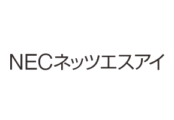NEC Networks & System Integration Corporation Customizes Microsoft SharePoint User Experience and Enforces Governance for 8,000 Users with AvePoint
Success Highlights
Customized SharePoint User Interface (UI) to allow end-users to easily navigate the system and simplify adoption across the organization
Fulfilled requests for 8,000 end-users automatically while ensuring all actions remain under control and in accordance with the organization’s governance policies
Enabled department leaders to generate reports on how much storage space each team member is utilizing, enabling improved cost management


Location Japan
Industry Telecommunications
Platform SharePoint 2010
Critical Needs
- Construction of a platform for information sharing with easy usage for all end-users, regardless of their IT skills
- Enforcement of governance throughout the organization automatically, while sustaining the quality of SharePoint operational services
With the help of DocAve Governance Automation, we are able to create the sites in a timely manner, ultimately speeding up our business process.
Mr. Masahiko Hirami
Senior Manager, Management Systems Division, NEC Networks & System Integration Corporation
Senior Manager, Management Systems Division, NEC Networks & System Integration Corporation
